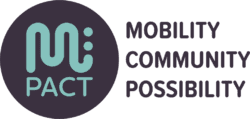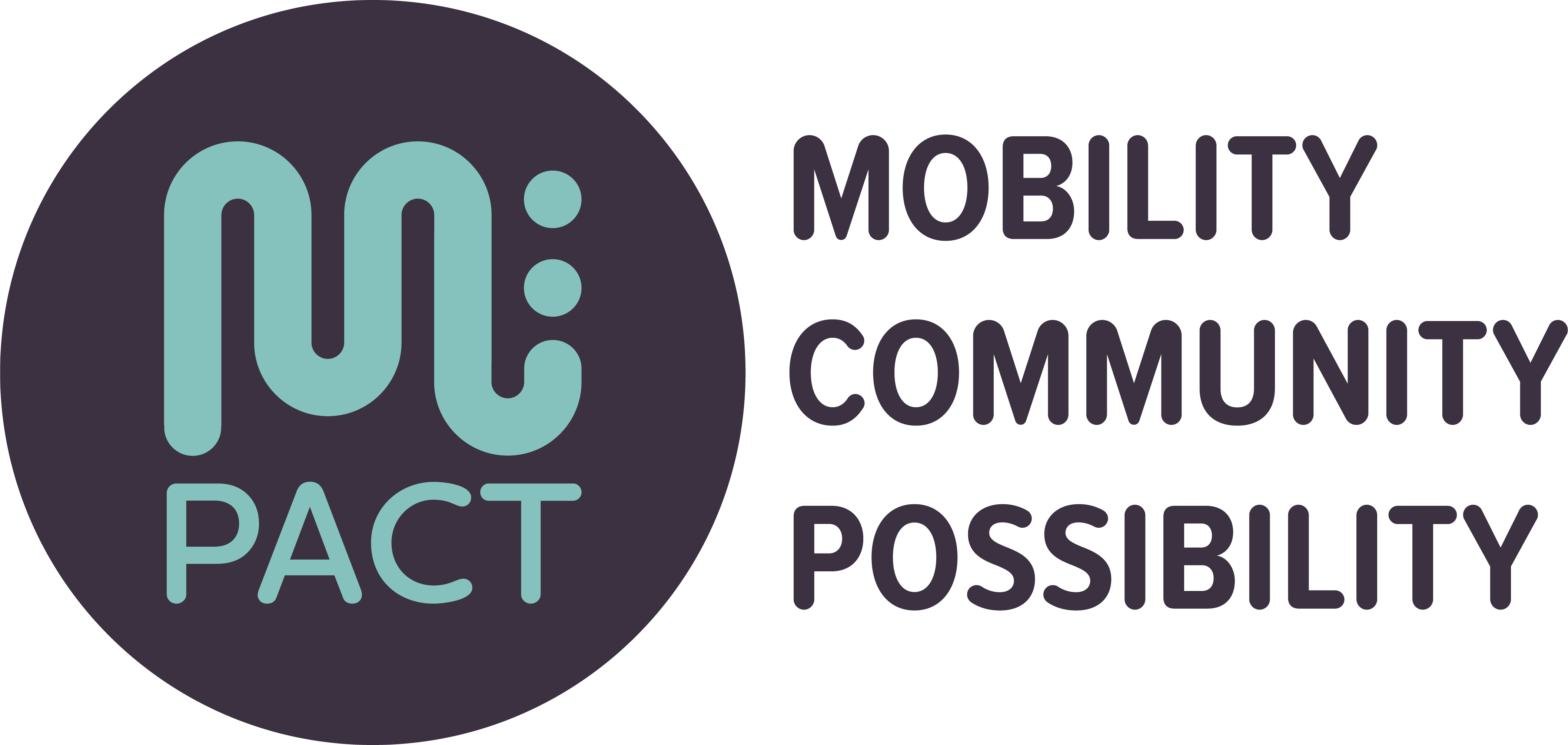Topics:
Tags: COVID-19, equitable development, Equity, Transit
Originally published on railvolution.org. Rail~Volution is now Mpact: Mobility, Community, Possibility.
During the COVID-19 pandemic and resulting economic downturn, we’ve seen how much we depend on essential workers. We’ve also seen that these same workers are often the most at risk. As the meme goes, “we are all weathering the same storm, but we are not in the same boat.” With essential workers taking center stage, transit equity and health equity have entered the public’s field of vision in a new way.
Rail~Volution embodies the notion that how we build our transportation systems and develop around them makes a big difference in access to opportunity. We know that the social determinants of health – conditions in the places where people live, learn, work, and play – affect a wide range of health risks and outcomes. We know that transit allows people access to the places where they live, learn, work and play.
Communities are now beginning to ease stay-at-home orders. States and cities are issuing new guidance about staying safe. Transit agencies are making plans for resumption of wider transit service.
As these plans take shape, it is imperative that we build a new normal with equity at the center.
Here are some great ways we’re seeing organizations do this:
The Untokening is a multiracial collective that centers the lived experiences of marginalized communities to address mobility justice and equity. They developed reflections and recommendations for mobility justice in the COVID-19 world.
We asked Adonia Lugo, a core organizer on the leadership team for The Untokening, about the biggest challenge of making long term change:
“I’d say a major challenge for making long-term change is the ownership that some folks feel over defining ‘the future.’ So often in recent years I’ve seen rhetoric in transportation and mobility about the future of cities, the future of transit, the future of mobility, but usually those projections are coming from homogenous thought networks that have little self-awareness about their own limited vision. I’d love to see the field get to a place where white people would feel embarrassed to assert stuff about urban futures while speaking only on behalf of a particular sector of the industry that is owned and operated primarily by white people. Numbers-wise, it’s actually multiracial communities who will determine the future of our cities and planet, not VC-backed tech bros :)” – Adonia Lugo
Recently, The Alliance convened an online transit equity event that included a discussion about how to prioritize the needs of essential workers, people with disabilities and communities of color not just now, but far beyond this current crisis. The Alliance developed a resource sheet including vision and values statements along with recommendations.
The American Public Transit Association (APTA) established a Mobility Recovery & Restoration Task Force, charged to develop a set of recommendations that cover a wide range of issues critical to public transit’s success including public and rider confidence, safe-guarding employees and riders, customer-focused operations, quick-strike rail and bus scheduling as well as resiliency, equity and societal needs.
Paul Skoutelas, President and CEO of APTA, added these thoughts about their work:
“APTA’s new Mobility Recovery and Restoration Task Force is focused on ways to rebuild public confidence, move toward recovery and restoration, and define the role of transit post-COVID-19. This pandemic likely changed life, and mobility, as we know it – but it has also spotlighted the vital role of public transportation in providing access to essential services. We believe that mobility is built on freedom and progress. By making opportunities accessible for all, our industry’s work is integral to improving people’s lives, regardless of race, economic standing or physical ability. Now more than ever, public transportation’s commitment to diversity, inclusion, and equity remains a fundamental part of who we are – as individuals, as an association, as an industry, and as a nation.” – Paul Skoutelas
Local Initiatives Support Corporation (LISC) created a Rapid Relief and Resiliency Fund, recognizing the disproportionate impact of the COVID-19 crisis on communities of color – a clear outcome of discrimination and underinvestment that long predates the pandemic. Their strategy is designed to help communities and people recover, and to build the strength and resiliency that will carry us all into a more equitable and just future.
It’s clearer than ever that we’re not in the same boat, train, bus, car, or bike. In order to create equitable transit-oriented communities, we must intentionally focus on a new bottom line, a new way of doing business, and a renewed commitment to rebuilding our communities as places where people of all incomes, abilities and identities can thrive.
At Rail~Volution, here’s what this commitment looks like:
We are about the people, not the project.
We are about redefining who neighborhood investment is for.
We are about creating places where everyone belongs and feels safe.
We are about transforming transit, planning and development from tools that enforce inequity into tools that create equity.
We invite you to join this work and be part of the Rail~Volution.


